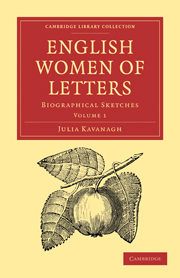Summary
There is a strange tide in the destinies of novels. Imagination and reality seem ever at variance, and each has its hour of triumph. When one prevails the other retires, but as invariably to return as the retreating sea to spread once more along the shore it had forsaken. Romantic stories and tales, that profess to deal with the truths of life, rarely flourish side by side. The regularity with which they sink and rise in public favour is one of the most curious features in the history of fiction. It would seem as if each generation of novel readers, and they are short generations, were bound to slight the labours of its predecessors and walk in other paths—paths which its successor will not follow. If the fathers cry, let us worship romance, the lofty, the ideal, their children rarely fail to exclaim, “Let us have reality!”—and wearied of reality, with its aspect bitter and unpoetic, made such by injudicious admirers, the third generation, longing for the imaginary and the improbable, goes back to the wildest tales of old romance.
The coarse, vigorous novels of Smollett and Fielding, the minute, exact, and prolix histories of Richardson, were still high in public esteem, and Goldsmith's exquisite tale of the “Vicar of Wakefield” was on its way to fame, when the “Castle of Otranto, a Gothic Story,” appeared.
- Type
- Chapter
- Information
- English Women of LettersBiographical Sketches, pp. 235 - 252Publisher: Cambridge University PressPrint publication year: 2010First published in: 1863



